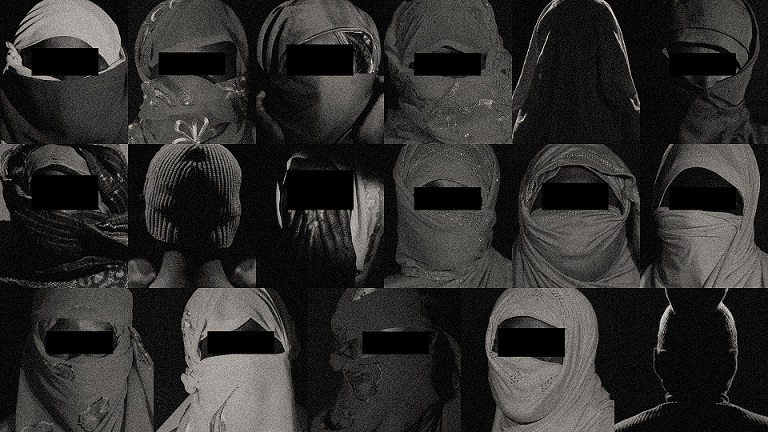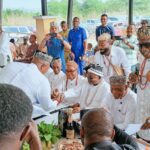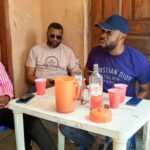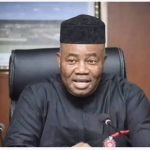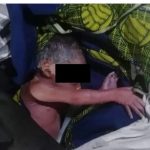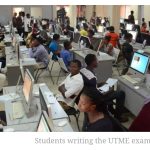More than 40 soldiers and civilians told Reuters they witnessed the Nigerian military kill children or saw children’s corpses after a military operation. Estimates totaled in the thousands. Reuters investigated six incidents in which at least 60 died. One mother described the deaths of her twin babies: “The soldiers said they killed those children because they are children of Boko Haram.”
he heard voices, then the sputter of gunfire.
Kaka crept behind an acacia tree and froze in terror. The teen was returning home after gathering firewood late one July afternoon in 2020. Peering ahead, he saw a group of men at a waterhole, most in Nigerian Army camouflage.
They stood over a line of children face down in the dirt, wailing for their mothers, Kaka recalled. Nearby, several adults lay prone – including mothers with infants tied to their backs. He heard some voices cry out to God.
Two or three men already lay dead; the soldiers shot three more. They killed the women next, and then the children, cutting short their cries with a hail of bullets, Kaka said. The troops dragged the bodies into a pre-dug grave, shoveled sandy earth over them and drove off.
Panic-stricken, Kaka tore off toward Kukawa, the nearby town in Nigeria’s northeast where he lived. The young man, now in his early 20s, was one of five people who recounted to Reuters details of the army-led roundup and mass shooting of at least 10 children and several adults at the waterhole that day.
The massacre, previously unreported, is just one instance in which the Nigerian Army and allied security forces have slaughtered children during their gruelling 13-year war against Islamist extremists in the country’s northeast, a Reuters investigation found. Soldiers and armed guards employed by the government told Reuters army commanders repeatedly ordered them to “delete” children, because the children were assumed to be collaborating with militants in Boko Haram or its Islamic State offshoot, or to have inherited the tainted blood of insurgent fathers.
Intentional killings of children have occurred with a blurring frequency across the region during the war, according to witnesses interviewed by Reuters. More than 40 sources said they saw the Nigerian military target and kill children or saw the dead bodies of children after a military operation. These sources included both parents and other civilian witnesses, as well as soldiers who said they participated in dozens of military operations in which children were slaughtered.
Together, their estimates added up to thousands of children killed.
Reuters was unable to independently verify each of those estimates. But reporters investigated six specific incidents and found, based on eyewitness accounts, that a total of at least 60 children were killed in those episodes, the most recent in February 2021. Each of those incidents, including the waterhole massacre, was confirmed by at least two sources who saw the killings or the aftermath.
Most of the children in the six army-led actions were shot, some in the back as they were fleeing. But soldiers used a range of methods to kill. Witnesses detailed specific instances in which Nigerian soldiers poisoned and suffocated children, too.
Yagana Bukar, in her mid-20s, said that after she and a group of other women and children escaped from Boko Haram fighters, two soldiers took her 4-month-old twin boys from her and smothered them before her.
“The soldiers said they killed those children because they are children of Boko Haram – they are not human beings,” said Bukar, whose account was corroborated by a fellow former captive. “They threatened me that if I wasn’t careful and didn’t keep quiet, they would kill me as well.”
Some parents told Reuters they had been left in agony because their children were taken by the military and never returned. They could not be sure, they said, whether their long-missing kids were dead or alive.
“Please, do what you can do,” one father begged a reporter, explaining that his 14-year-old son was among eight boys taken by soldiers in another incident in Kukawa, in 2019, and never seen again. “So the story can go viral, so that if my son is alive, he can come back to me.”
This report is based on interviews with 44 civilian witnesses with knowledge of killings and disappearances of children. Reuters also interviewed 15 security force members – soldiers, local militia members and armed guards – who said they took part in or observed targeted killings of children.
